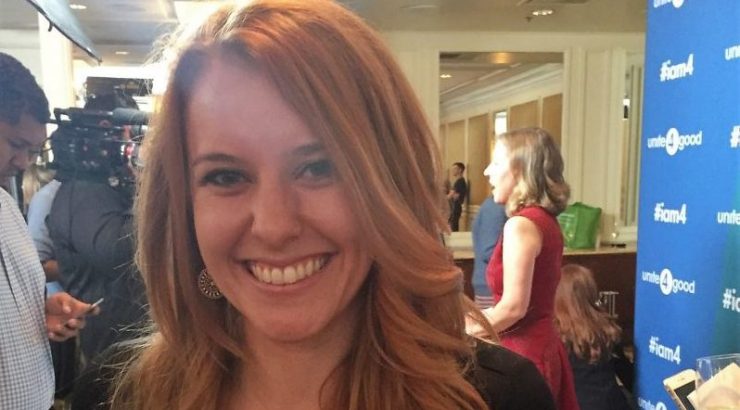
Advertising and Promotion Procurement in NYC: The Perfect Balance of Creative and Quantitative Alumni Spotlight: Hilary Smith COM ‘13
April 19, 2019
Hilary graduated in 2013 with a double major in communication studies and film studies. Below she talks about how she landed in the advertising and promotion procurement field and what her current position at The Estée Lauder Companies Inc. in NYC entails. If you want to connect with Hilary you can find her on LinkedIn.
Where do you work and what is your job title?
I am the Assistant Manager, Indirect Procurement – Advertising and Promotion at The Estée Lauder Companies Inc.
What does your job entail?
My job at the The Estée Lauder Companies Inc. is within the Indirect Procurement group. We’re responsible for all spending that happens outside of the physical saleable products. This encompasses IT, travel, consulting services, and my discipline: media, advertising, and marketing.
I manage the procurement of production, print, and promotional goods within our marketing spending. This entails relationship building with our creative agencies and working alongside brand creative to help them select the best production companies and creative groups to work with. I do contract management, vendor quarterly business reviews, and negotiations to make sure we have the “right” suppliers helping us achieve our advertising and promotion goals.
How did you decide to pursue a career in indirect procurement?
As a Communication Studies and Film Studies double major, I’ve always had a passion for film and/or artistic type work. After graduation and an internship at a film studio, I felt I was missing the quantitative roots I developed while studying at Chapman in the Social Sciences. I did not know where to hone these skills and said yes to a random purchasing intern opportunity. After that, I ended up in procurement rather serendipitously. My mother had a career as a retail buyer and advocated for this potential path after I told her I found entertainment unfulfilling. She knew how much I liked trends, and my aptitude for project management. I embraced my internship, and immediately loved the balance of managing personal relationships with business analysis to influence those at the decision-making level. I’ve always felt more comfortable in a team setting, working behind the scenes, and procurement is just that. You’re using your analysis and your relationships to help the company save money, so they can make better decisions in the future. With my current role and background in media, I’ve been able to draw on my creative experiences to really understand those who are impacted by my influence and better understand the category I cover.
How has your communication degree benefited you in your career?
My communication degree has been invaluable to my career. The harmony of a degree that ties together interpersonal relationships, corporate communication, and quantitative analysis has helped me develop into an extremely well-rounded professional. No matter what path you embark on, there will be some portion that will be dictated by your ability to work with numbers. Even if it’s basic budgeting or trend graphs, it will help you solve problems and be the person ahead of the curve. Corporate culture is so much about performance: how you appear in a conference room and how well you present your information. These are skills I wouldn’t have without the guidance of the School of Communication.
What advice do you have for undergraduate students or recent graduates?
My advice is to say yes to opportunities and don’t be afraid to try things you’re not so sure about. There are so many types of careers out there and it can be difficult to make sense of it all. Keep in contact with your friends from Chapman – they will be key in years to come for networking and career contacts and will have your back if you move to a new city or need to change fields. Also, don’t be afraid to make a mistake. People, no matter how accomplished or wise, are constantly making them. It’s part of growing as a leader and member of corporate society.

